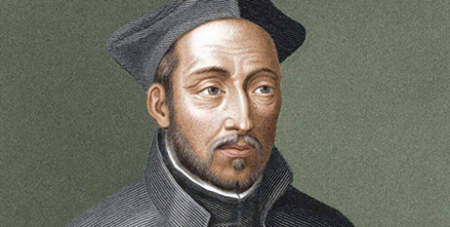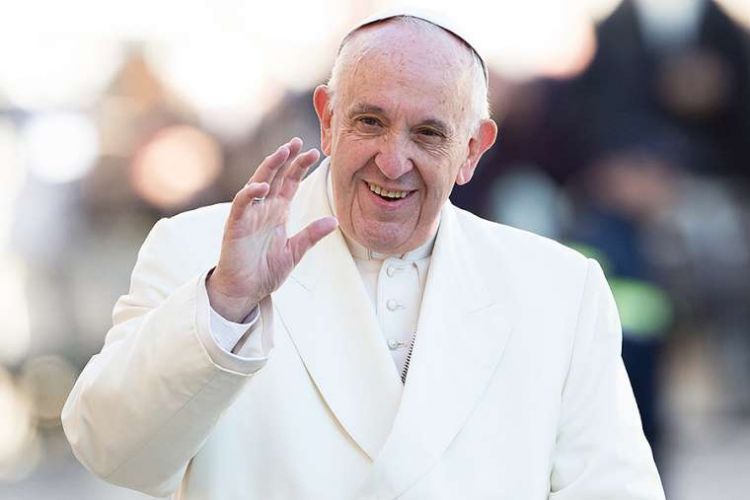Pope Francis address on the Beatitutdes
“The Beatitudes define the identity of the disciple of Jesus,” Pope Francis said Sunday in his commentary before praying the Angelus with the faithful in St. Peter’s Square.
His commentary was centered on the Gospel of the day: The Beatitudes. He suggested that the words of this famous passage would seem strange to anyone who is not a disciple: “Blessed are you poor, for yours is the Kingdom of God.”
The Pope explained that in “human terms” the people who are blessed would seem to be those with riches and are envied by others. Jesus rejects this wordly mindset, declaring it to be a failure. For the disciple, success comes in poverty.
Read the whole story at Exaudi https://www.exaudi.org/pope-beatitudes-define-the-idenity-of-the-disciple-of-jesus/
Pope Francis to Catechists
Listen to the message of Pope Francis to catechists. This could be a good reflection for the start of next year
https://www.ceosand.catholic.edu.au/catholicidentity/source-of-life/section-2/dialogue
Feast of Mary MacKillop
Many years ago when I was a young teacher and before Mary MacKillop was a saint I was attracted to her. She had been the kind, gentle face watching over my primary school classes. In those early years I did not really know much about her but when I graduated and went to teach in a Catholic Josephite school I became more familiar with her story.
What drew me to Mary was her calm confidence in her identity and her call. I was attracted by her courage in the face of adversity. I was amazed that someone so young was able to respond to the needs for education at a time when it was not universally available and there were many challenges to overcome, in order to provide it, especially for the poor.
Mary was brave, tenacious, generous, passionate and inspirational but most of all she was faithful. Mary named the Sisters for St Joseph as she wanted us to have a love for Christ and work in “hidden, humble service”. She also added the Sacred Heart to our name because she wanted us to experience and share the love of Jesus in the world.
As we celebrate Mary’s feast day in Australia on the 8th of August let us see how she points us towards God and invites us to experience and share the love of Jesus in our world.
Australian Catholics have many stories and resources to support teaching about Mary MacKillop and spreading her love for God and humanity https://www.
The Sisters of St Joseph website also has Educational Resources available at https://www.sosj.org.au/
Sr Geraldine Larkins RSJ
Ordination of Rev Adi Indra
Congratulations to Rev Adi Indra, ordained to the priesthood Saturday 10th July at Sacred Heart Cathedral, Bendigo. Fr Adi has been studying in Rome and recently returned to Australia for his ordination. Fr Adi will be based at St Brendan's, Shepparton, until mid-September, when he will return to Rome to complete his doctorate in canon law.
We welcome another priest to serve the Sandhurst Diocese.
You can watch the live streamed ordination here.
Solemnity of the Most Holy Body and Blood of Christ
6 June 2021
Homily by Fr DJ
“What’s the big fuss about the Eucharist?”
This was one of the questions I was asked by a Year 10 student while preparing them for their class Mass. You see, I have always thought that students in our schools would have, at least, a knowledge of what the Eucharist is and why it is important for us. Instead of being turned off by the question, I took it as a teaching moment. There’s just so much beauty in this so great a mystery that I wanted to share with them.
We celebrate today the Solemnity of Corpus Christi, that is, the Solemnity of the Most Holy Body and Blood of Christ. It’s a feast that celebrates the real presence of our Lord Jesus Christ in the Eucharist. I find it quite ironic that we in the parish have to celebrate the Real Presence of Christ virtually. Nevertheless, the solemnity we are celebrating today invites us to renew our faith in our Lord who is so serious about his promise of being with us until the end of time, even if that meant he had to take the form of bread and wine. He is really present. Indeed, not just spiritually, but physically.
Do we believe this? You see, a recent survey by Pew Research done in the US tells us that seven in ten Catholics there believe that the bread and wine are only symbols of the Body and Blood of Christ, that is, only one third of Catholics in the US believe the bread and wine actually become the body and blood of our Lord. I don’t know what the numbers are here in Australia, but that survey is a sobering reminder for us here to revisit our appreciation of the Eucharist.
Yes, we have to affirm that the bread and wine becomes the real presence of Christ. We have a technical word for that: transubstantiation, the substance of the bread and wine, through the invocation of the Holy Spirit, becomes the substance of the Body and Blood of Christ, thus making Christ really and substantially present. I know that’s enough to ponder on for our celebration tonight. But let me put simply this theological concept. In every Eucharist that we celebrate, we ask God to turn the bread and wine to the living presence of our Lord. We ask God to “Christify” our gifts of bread and wine.
We can end there. But that is only one side, as it were, of the equation. What could the Lord be trying to tell us here? Why go to such great lengths, to have his continuing presence with us and among us today, even if it’s only in the form of bread and wine?
We remember that evening of the Passover when “he took some bread, and when he had said the blessing, he broke it and gave it to them, ‘Take it,’ he said, ‘this is my body.’ Then he took a cup, and when he had returned thanks, he gave it to them, and all drank from it, and he said to them, ‘This is my blood, the blood of the covenant, which is to be poured out for many.’”
We celebrate our redemption, our salvation, in the passion, death, and resurrection of Christ. In the Eucharist, God makes present to us, here and now, the grace of salvation that Christ offered us, and continues to offer us, in the sacrifice of his redeeming love. Christ’s real presence is a continuing offer of salvation for us, dear brothers and sisters. Because, let’s face it. We are a people that constantly needs saving, saving from all that weighs us down, all our unfreedom, and all that binds us. In the Eucharist, we continue to own that salvation that was once and for all won by Christ on the cross. Yes, we have been saved in this victory, but we need to own this salvation by becoming what we receive.
Yes, I guess this is the reason why Christ wants to be with us. In every Eucharist, in every communion, we draw life from Christ’s sacrifice. And having drawn life from him, we draw the world to him. We become whom we receive. He became food for all our hungers and thirsts. So too we strive to be his presence, and be bread and wine for others.
So what’s the big fuss about the Eucharist, you ask? It’s simply where all that we believe, all that we hold true and dear, meets. And so we say, Amen. So be it.
Blessed be Jesus Christ in the most Holy Sacrament of the Altar. Amen.
Prayer a humble dialogue not a magic wand: Pope
From Cath News
Prayer is not a magic wand or a way to ask God to be at one’s service. It is instead a humble dialogue with God to grow spiritually and discover his will for the world, Pope Francis said yesterday.
“In prayer, it is God who must convert us, not we who must convert God,” the Pope said during his weekly general audience. Francis continued his series on prayer by looking at how people can be certain God really listens to their prayers.
“Sometimes our prayers seem to go unheard, what we have asked for — for ourselves or for others — is not fulfilled,” he said. “Why does he not respond to our requests?” the Pope asked.
“Prayer is not a magic wand,” he said. “It is a dialogue with the Lord. Indeed, when we pray, we can give in to the risk of not being the ones to serve God, but of expecting him to serve us.”
“When we pray, we need to be humble” and believe “that God will give me what is right to give. He knows,” the Pope said. People sometimes pray for the wrong reasons, keen to make sure God is with them, he said, “but few bother to check whether they are actually with God.”
Addressing the question, “Why does it sometimes seem that God does not listen?”, Pope Francis said that over time, people may see that some things do work out, “but in God’s way, the divine way, not according to what we wanted at that moment. God’s time is not our time,” he said.
24th May Celebration of 200 years of Catholic Schooling in Australia
The Prime Minister Scott Morrison sent this message
We celebrated with a Mass at St Kilian's
20th May 2021 Begins the Ignatian Year "To see all things new in Christ"
From today until the end of July 2022, the Society of Jesus will celebrate “The Ignatian Year” to remember the life of St Ignatius of Loyola, the founder of the Jesuits. Source: Vatican News.
The year commences today on the 500th anniversary of St Ignatius’ injury during the Battle of Pamplona on May 20, 1521. While defending the citadel of Pamplona against French forces, St Ignatius was seriously injured after being struck by a cannonball. This led to a long period of convalescence which began his conversion and subsequent transformation from soldier to saint.
During this year themed “to see all things new in Christ”, the Jesuits will also mark the 400th anniversary of the canonisation of St Ignatius and St Francis Xavier on March 12, 2022. The Ignatian year will conclude on July 31, 2022, the Feast of St Ignatius. The solemn opening Mass for the Ignatian Year will take place today in Pamplona, Spain.
The Ignatian year “is a call to allow the Lord to work on our conversion,” said Fr Arturo Sosa SJ, Superior General of the Jesuits. “We ask for the grace to be renewed by the Lord. We wish to discover a new apostolic enthusiasm inside ourselves, a new life, new ways to follow the Lord. That is why we have chosen as our theme for the year: to see all things new in Christ.”
For prayers and more information https://www.jesuits.org/spirituality/ignatian-year/

On May 11th, Pope Francis made the historic decision to formally announce the new Ministry of Catechist!
This announcement allows lay women and men to be officially recognized by their faith communities for what Pope Francis calls
"stable form of service rendered to the local Church."; The apostolic letter, Antiquum Ministerium, goes on to say:
"The role played by catechists is one specific form of service among others within the Christian community. Catechists are called first to be expert in the pastoral service of transmitting the faith as it develops through its different stages from the initial proclamation of the kerygma to the instruction that presents our new life in Christ and prepares for the sacraments of Christian initiation, and then to the ongoing formation that can allow each person to give an accounting of the hope within them (cf. 1 Pet 3:15). At the same time, every catechist must be a witness to the faith, a teacher and mystagogue, a companion and pedagogue, who teaches for the Church. Only through prayer, study, and direct participation in the life of the community can they grow in this identity and the integrity and responsibility that it entails (cf. Pontifical Council for the Promotion of the New Evangelization, Directory for Catechesis, 113)."
accounting of the hope within them (cf. 1 Pet 3:15). At the same time, every catechist must be a witness to the faith, a teacher and mystagogue, a companion and pedagogue, who teaches for the Church. Only through prayer, study, and direct participation in the life of the community can they grow in this identity and the integrity and responsibility that it entails (cf. Pontifical Council for the Promotion of the New Evangelization, Directory for Catechesis, 113)."

Follow